
The Law on Teachers coming into effect will create many changes for the teaching staff.
PHOTO: DAO NGOC THACH
The Law on Teachers empowers teachers to maintain ethics
The Law on Teachers was passed and the regulation on increasing teachers' salaries to the highest level in the administrative career salary scale is a very good thing, but it also comes with a lot of responsibility. For the first time in the history of education legislation, the position of teachers is recognized by the highest level of treatment in the administrative career sector.
It is not only a joy but also an awakening of the professional spirit of the teaching staff nationwide. When we are paid fairly, we understand that society is placing great trust and expectation on the qualities, abilities and dedication of teachers. The problem is to soon realize this regulation by sub-law documents, so that the increased income is not only on paper, but also goes into life, helping teachers maintain ethics, love their profession, and be devoted to their students.
Besides, the Law on Teachers does not prohibit extra teaching and learning, but prohibits coercion and profiteering. This is a progressive and humane perspective, a very correct change, both practical and creating integrity in the teaching profession.
For many years, tutoring has always been a sensitive and controversial issue. However, a complete ban is unrealistic, especially when the need for tutoring and enrichment for students is real and legitimate. The important thing is to prevent coercion, intimidation, turning tutoring into a tool for profit, damaging the relationship between teachers and students.
The fact that the Law on Teachers does not prohibit extra teaching but prohibits coercion has drawn a line between ethics and violations. This is the basis for the education sector to strictly handle violations, while protecting honest teachers who are dedicated to teaching extra classes in accordance with the law for the sake of students. Professional integrity is the foundation for regaining social trust in teachers.

Teachers' salaries are ranked at the highest in the salary scale system and the education sector is proactive in recruiting teachers, which are expected to be factors contributing to improving the quality of education.
Photo: Dao Ngoc Thach
Sub-law documents need to be consistent.
When the Law on Teachers is already in place, do sub-law documents, such as Circular 29, need to be adjusted to be consistent? Certainly, adjustments are needed. We cannot let the law go one way, while the implementation policy goes another.
Circular 29 currently has many points that are not consistent with the new spirit of the Law on Teachers. For example, the regulations on teacher testing and evaluation or disciplinary procedures are still mechanical and formal. When the law has established the central role and subject of teachers in the educational process, relevant circulars and decrees must be amended promptly to protect the legitimate rights of teachers and improve professional capacity instead of increasing administrative burdens. The synchronization between the law and sub-law documents is a vital factor so that the Law on Teachers is not only a symbolic milestone, but also a turning point for substantive reform.
The Law on Teachers is the first law that focuses on teachers, not only in terms of income but also in terms of status, ethics, rights and professional responsibilities. However, the law will only truly come to life if we resolutely amend related policies and implement them transparently, fairly and consistently. That is when teachers are empowered to keep their hearts full – forever bright with the profession – and accompany the development of education in our country.
Highest salary, proactive recruitment will contribute to improving the quality of education
When teachers' salaries are ranked at the highest in the administrative career salary scale system, teachers can devote themselves to teaching, stabilize their family life without having to worry about "bread and butter" by working extra, teaching extra... teachers need to actively change to meet the new demands of the country.
Placing teachers’ salaries at the highest position in the administrative career salary system will solve one of the biggest problems in the education sector, which is attracting and retaining talent. High salaries will attract good and excellent students to the teaching profession, and at the same time retain teachers with solid professional capacity. This will create a team of high-quality teachers, capable of better meeting the requirements of current educational reform.
Mr. Ngo Quoc Khanh, a teacher at Trinh Phong Secondary School ( Khanh Hoa Province), shared: "When we heard that the Teachers' Law was passed by the National Assembly, especially that teachers' salaries were ranked highest in the administrative salary scale, my career as well as most of the teachers in the school were extremely happy and joyful because the salary was enough to live on."
When the main income from salary is enough to cover daily living expenses, teachers will wholeheartedly focus on investing in the content of their lessons, making their lessons more profound and quality; actively improving teaching methods to achieve better teaching results; paying better attention to each student... When the quality of regular teaching lessons is improved, it is hoped that extra teaching and learning will gradually be eliminated, and students will no longer need to take extra classes.
In addition, the Law on Teachers, which grants autonomy to educational institutions in recruiting and using teachers, will help the sector solve the current problem of local teacher shortages. According to statistics from the Ministry of Education and Training, by the end of the first semester of the 2024-2025 school year, the country is still short of more than 120,000 teachers at public preschool and general education levels. However, the country still has about 60,000 positions that have been assigned but have not yet recruited teachers.
This situation is due to a number of reasons. For example, the plan for training and using teachers is not unified and scientific between teacher training schools and each locality, leading to local surpluses and shortages in different localities. At the same time, the education sector is not yet authorized to recruit and use teachers.
When the education sector is empowered to recruit and use teachers, ensuring the principle of "where there are students, there must be teachers in the classroom" in accordance with local realities, there will be no waste of teacher resources and no situation of having a payroll without recruiting.
Nguyen Van Luc
(Trinh Phong Secondary School, Dien Khanh, Khanh Hoa)
Source: https://thanhnien.vn/luat-nha-giao-khong-chi-ghi-nhan-ve-thu-nhap-ma-con-la-trach-nhiem-185250617162755224.htm



![[Photo] Opening of the 14th Conference of the 13th Party Central Committee](https://vphoto.vietnam.vn/thumb/1200x675/vietnam/resource/IMAGE/2025/11/05/1762310995216_a5-bnd-5742-5255-jpg.webp)




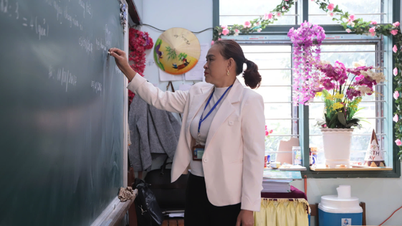




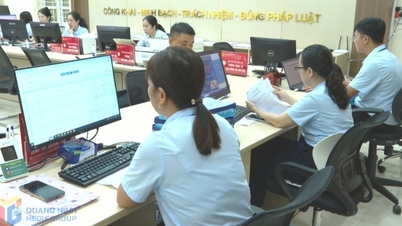




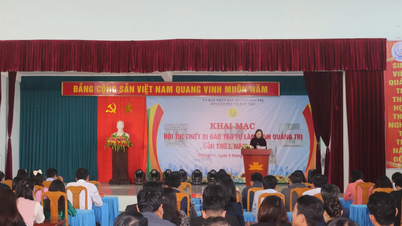



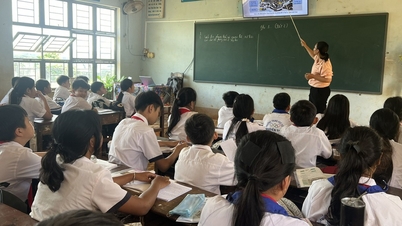
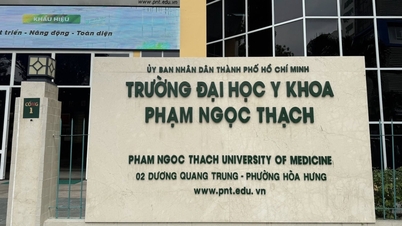

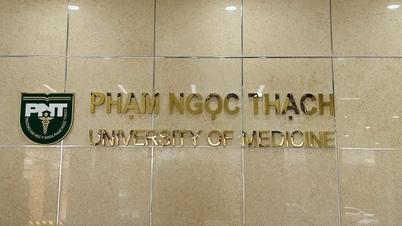










![[Photo] Panorama of the Patriotic Emulation Congress of Nhan Dan Newspaper for the period 2025-2030](https://vphoto.vietnam.vn/thumb/1200x675/vietnam/resource/IMAGE/2025/11/04/1762252775462_ndo_br_dhthiduayeuncbaond-6125-jpg.webp)















































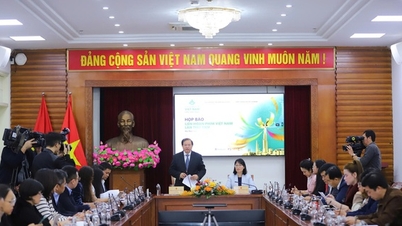
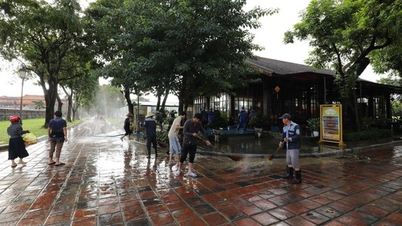
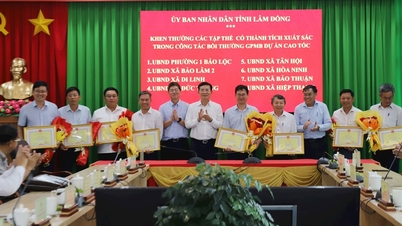
























Comment (0)